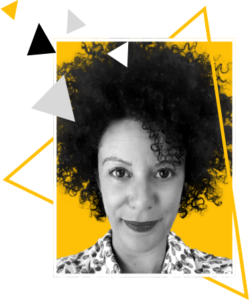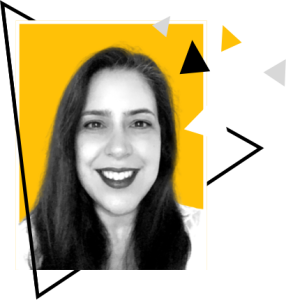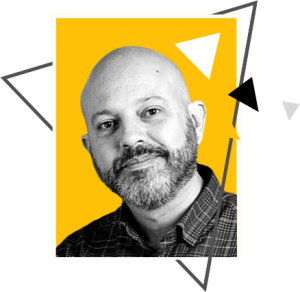

We understand that beyond anticipating, exploring and decoding scenarios of plausible, preferable and possible futures, working with futures changes our perception of the present, helping us deal strategically with the challenges of the contemporary world. We do this in a pragmatic, tactical way and aiming at 360 degrees innovation, utilizing short to long term time horizons.
We are a strategic consultancy that combines foresight, futures studies, and megatrends. We empower individuals and organizations to develop Futures Literacy, an essential skill for the 21st century according to UNESCO.
We work within corporate, educational and governance environments in the public and private sectors, helping partners identify signs of futures in the present and deal with complexity, as well as manage risks and uncertainty in decision-making processes. We do this through the use of prospective methods and tools, and in collaboration with researchers and experts from a variety of fields.
We believe we cannot think of futures without sustainability, diversity, equity, inclusion, and belonging in mind.
We work WITH the company, rather than FOR the company
Imagining and constructing futures strategies and essential 21st-Century ability
Tools to navigate current uncertainties that will reflect in the futures
If we don’t think of our own futures, someone will do it for us.

Joice works as a consultant and researcher in futures studies, strategic and social foresight in the European and Latin American markets, facilitating projects in corporate, educational, and community contexts.
She is a member of FENEU (Foresight Europe Network), collaborates with the Italian Institute for the Future, and is vice-president of ALAF (Latin American Futures Association). Together with Italian researcher Ariana Mereu, she coined the concept of Futurewashing, published in a scientific article in FUTURI, an Italian journal specializing in futures studies.
In 2020, she gave her first TED Talk with the presentation “Foresight for Dummies: Futures Studies Explained to My Daughter.” In 2023, she presented the workshop “Verona in 2050: What Will the Natural Capital Be Like?” at TEDx Verona.

Seasoned women’s rights activist with strong experience in GBV, advocacy, diversity, equity, inclusion, and belonging as well as community organizing. Demonstrated excellence engaging the general public and various stakeholders around common causes while tactfully navigating cultural differences.
Speaker at conferences, Stella had her body of work recognized through the Women Award London 2024 edition as the #1 activist combating gender violence.

Founding member of the Brazilian Association of Futurists.
Transdisciplinary practitioner working across the fields of Performance, Futures and Education. Since 2019, he has been developing the concept of ‘Performance for Futures’, in which performance practices and futures concepts interact to generate insights and novel ways of approaching our relationship with the ‘not-present, not past’. He has created numerous games and tools for this purpose, delivering workshops to various and diverse groups of participants, from asylum-seeking minors to United Nations officials; from school children to university academics.
We are supported in our work by a group of multidisciplinary international experts and researchers. Their technical and strategic advice can be accessed according to each project’s demands. Our network continues to expand.

President - Italian Institute for the Future - Italy

Co director Speculative Design Hub - Italy

Trend Forecaster & Strategic Foresight Italy

Neuroscientist - Canada

Lawer & Teacher in the UQAM Law Science Department, Canada

Agronomy Engineer - Brazil








Futures Studies is a metadiscipline, a transdisciplinary field of research focused on the systematic and critical investigation, mapping, and decoding of preferable, plausible, probable, and possible futures. Research into alternative futures aims to anticipate significant changes on the horizon to improve the effectiveness of present-day decision-making. Futures Studies operates on the premise that the future is unpredictable, but often anticipatable through methods and tools, analysis of the current context and ongoing megatrends, scenario creation, strategy design, and radical imagination.
Strategic Foresight, or corporate foresight, is the application of futures research methods in the corporate and organizational environment, using medium- and long-term time horizons. Strategic Foresight explores and anticipates megatrends, risks, emerging issues, and their potential implications and outcomes, as well as identifies opportunities for innovation to extract valuable insights for strategic planning. According to futurist Richard Slaughter, it is the ability to create and maintain a high-quality, coherent, and functional vision of the future and use the insights derived in a way that is useful for organizational planning.
According to UNESCO, Futures Literacy is a key skill for the 21st century. It is the ability to “use” the future in the present across various contexts, with distinct objectives and processes.
“The difference between forecast and foresight is striking, meaning there is no smooth transition between them” (Poli, 2019; Tuomi, 2019). While the words forecast and foresight might seem similar, in the field of futures studies their concepts differ in important ways. According to Professor Roberto Poli, holder of the UNESCO Chair in Anticipatory Systems, forecast refers to the interpretation of “past data” obtained through statistical methods for trend extrapolation, economic and demographic data, sociocultural research on consumer behavior, etc., whereas foresight makes use of “data from the futures.”
Futurewashing is a neologism coined by futures & foresight researchers Arianna Mereu and Joice Preira. It indicates a marketing communication strategy used by certain corporations, brands, organizations, governments, consultancies, and consultants to construct a false image of themselves regarding the future, especially in terms of innovative impact. It often includes exaggerated, superficial, or entirely false claims of preparedness, adaptability, and/or strategic foresight and planning. This approach can be intentional or unintentional (conscious/unconscious). Entities involved in futurewashing seek to enhance their reputation and attract stakeholders,
Speculative and Critical Design is an approach that uses design as a medium to create artifacts, products, or services that “exist” in future scenarios and extend current trends in technology, economy, politics, environment, culture, and society. It is not an attempt to predict the future but to create narratives of possible future realities to question the implications for the present. The concept was coined by Anthony Dunne and Fiona Raby, professors at the Royal College of Art in London.
Currently, there are more than 80 established methods in the field of futures studies and strategic foresight. Made in Futures has developed its own future simulation tool and also uses methods that meet various market needs, such as the 3 Horizons Framework (Bill Sharpe), Manoa Method, Causal Layered Analysis, Future Lab, Futures Literacy Labs, Horizon Scanning, Scenario Planning, Megatrends Implications Assessment, Performance for Futures, tools from Game Theory and anticipatory systems, design fiction and speculative design methods for futures immersion, among others.
The acronym DEI&B stands for Diversity, Equity, Inclusion, and Belonging.
Beyond the moral and ethical imperatives, DEI&B in professional contexts tends to be highly effective, as diverse life experiences and cultures foster a more creative and flexible approach to problem-solving. Democratizing and decolonizing spaces is necessary as long as there is a culture of genuine team integration because a sense of belonging is a psychological bond between employee and company, where the employee sees themselves as part of a community. It is also necessary for diversity to reach all levels of the organization.
In her TEDx Barletta talk in Italy, futurist Joice Preira answers an emblematic question from her daughter: 'Mom, how do you work with the future if it doesn’t exist?'
The first step toward understanding is to change perspective and adopt a prospective vision: it’s not about a single future, but about scenarios of possible futures....
Interview with Pedro de Senna about the development of Futures Literacy Theatre Labs, at the UNESCO’S Global Futures Literacy Design Forum, 2019.
In this article written for the WEF, the team of professionals in the field of Futures and Foresight, of which Joice Preira was a part, describes the four essential skills for the post-pandemic world